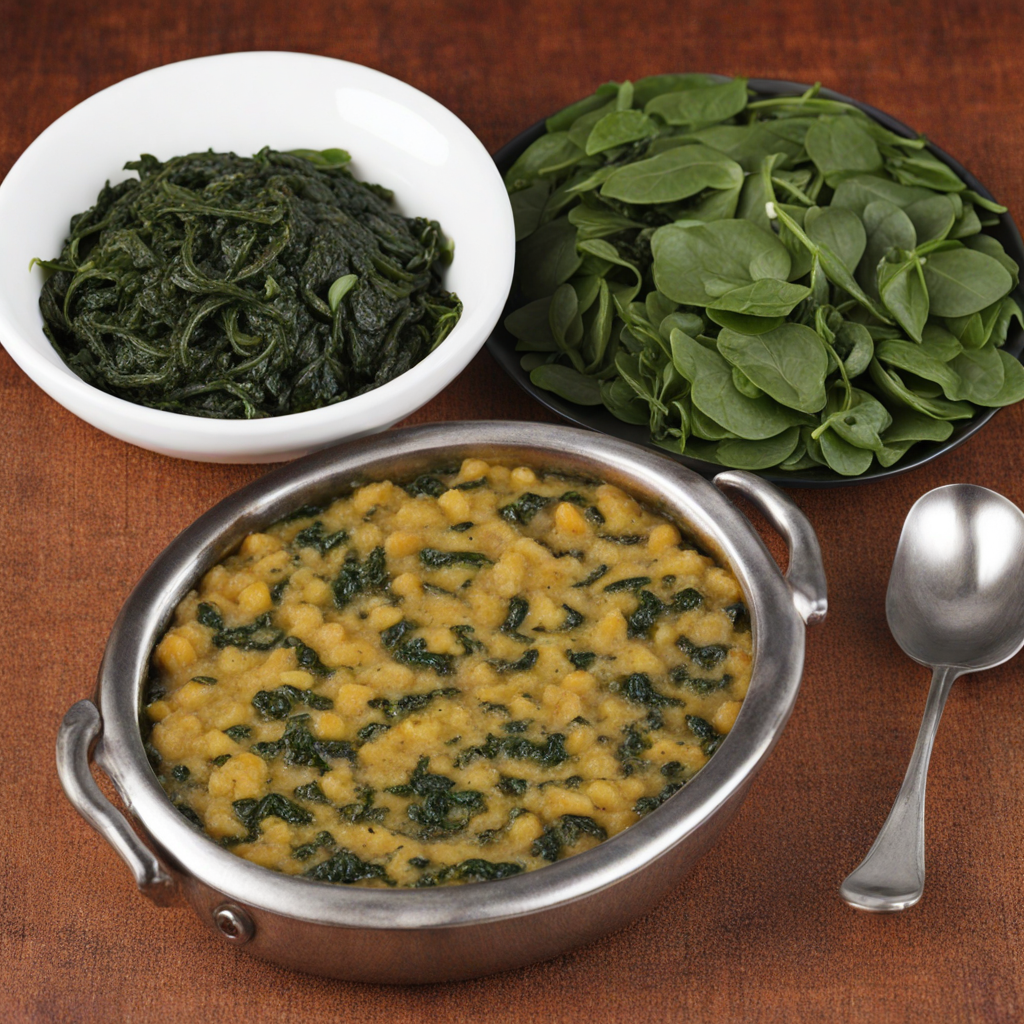Motoho
Motoho is a traditional fermented maize porridge from Lesotho that offers a unique taste experience, blending the earthy flavors of corn with a slight tanginess from the fermentation process. This dish is often enjoyed as a staple food, reflecting the agricultural heritage of the Basotho people. The texture is creamy and smooth, reminiscent of polenta, but with a distinct depth of flavor that comes from its fermentation, which can take several days to develop. The combination of the soft, warm porridge and its subtle sour notes creates a comforting and satisfying dish that is both nourishing and filling.
Motoho is typically enjoyed as a breakfast item or a side dish, and it can be complemented with various toppings or ingredients. Often served with milk, sugar, or fresh fruits, it can also be paired with savory stews or meats, enhancing its versatility. The dish is deeply rooted in Basotho culture, often prepared during communal gatherings or special occasions, and its preparation can be a social activity, bringing families and friends together.
How It Became This Dish
Origin and Ingredients Motoho is a traditional fermented maize porridge originating from Lesotho, a landlocked country in Southern Africa. The dish is deeply rooted in the Basotho culture, with its origins tracing back hundreds of years. Maize, or corn, is a staple crop in the region, introduced to Africa from the Americas in the 16th century. The adaptation of maize into local diets transformed the culinary landscape of the Basotho people, leading to the creation of various dishes, including Motoho. The primary ingredients of Motoho are maize meal, water, and a sourdough starter, typically made from fermented maize or sorghum. The fermentation process not only gives Motoho its distinctive tangy flavor but also enhances its nutritional value. The fermentation is crucial, as it enriches the porridge with probiotics, improving gut health and digestion, making it a vital source of sustenance for communities. \n Cultural Significance In Basotho culture, Motoho holds significant cultural importance. It is often served during communal gatherings, celebrations, and rites of passage, symbolizing hospitality and unity. The preparation of Motoho is considered a communal activity, bringing families and friends together. Traditionally, it is often enjoyed with a variety of accompaniments such as sugar, milk, or sour milk, which adds layers of flavor and texture to the dish. Motoho is also associated with traditional beliefs and practices. In some communities, it is offered as a blessing or a form of sustenance for ancestors during rituals, reflecting the deep connection between food, spirituality, and heritage. This dish embodies the Basotho way of life, expressing their values of community, sharing, and respect for traditions. \n Development Over Time Over the years, Motoho has evolved, influenced by various factors, including colonization, globalization, and the migration of people. During the colonial period, traditional food practices were impacted by external influences, leading to the introduction of new ingredients and cooking methods. However, Motoho remained a staple in the Basotho diet, as families continued to prepare it using time-honored techniques. In contemporary Lesotho, Motoho has experienced a resurgence in popularity, particularly among younger generations who seek to reconnect with their cultural heritage. This revitalization is evident in various culinary initiatives and festivals that celebrate traditional foods. Also, the rise of food tourism in Lesotho has brought attention to Motoho, as visitors are eager to experience authentic Basotho cuisine. \n Motoho in Modern Cuisine Today, Motoho is not only consumed as a traditional dish but has also found its place in modern cuisine. Chefs and home cooks alike are experimenting with Motoho, incorporating it into fusion dishes or serving it alongside contemporary meals. The dish's versatility allows it to be paired with various proteins, vegetables, or sauces, creating a unique culinary experience that honors its origins while embracing innovation. Furthermore, the growing awareness of health and wellness has led to a renewed appreciation for fermented foods, which are known for their positive effects on health. As a result, Motoho is being recognized not only as a comforting staple but also as a nutritious option that supports gut health and overall well-being. \n Global Recognition and Preservation The global interest in ethnic foods has put Motoho on the culinary map, attracting attention from chefs, food enthusiasts, and researchers interested in traditional African cuisines. Efforts are being made to document and preserve the traditional methods of making Motoho, ensuring that the skills and knowledge are passed down through generations. This preservation is crucial in maintaining the cultural identity of the Basotho people, especially as globalization continues to influence culinary practices worldwide. Organizations and community groups are also working to promote traditional foods like Motoho, emphasizing their importance in sustaining local economies and agricultural practices. By supporting local maize farmers and promoting the consumption of traditional dishes, these initiatives not only help preserve culinary heritage but also contribute to food security and economic development in Lesotho. \n Conclusion In summary, Motoho is much more than just a fermented maize porridge; it is a symbol of the Basotho people's resilience, creativity, and cultural pride. As it continues to evolve and adapt to modern tastes and global influences, Motoho remains a vital part of Lesotho's culinary heritage. The dish serves as a reminder of the importance of food in connecting communities, preserving traditions, and fostering a sense of identity in an ever-changing world. As the Basotho people embrace both their past and their future, Motoho will undoubtedly continue to play a central role in their culinary narrative.
You may like
Discover local flavors from Lesotho






